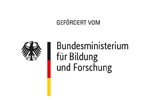This series of studies started in 1976 and is funded by the Federal Ministry of Education and Research (BMBF). It surveys cohorts of school leavers with a higher education entrance qualification selected from all over Germany, addressing them several times at differing time intervals using written questionnaires. These longitudinal studies gather data on the following issues, among others:
- Study and vocational training intentions
- Choice of subject, vocational training and career
- Progress of studies, vocational training and career
In addition, the school leavers’ underlying motives, attitudes and expectations are also examined at key stages of the post-school career.
For the Panel Study of School Leavers with a Higher Education Entrance Qualification 2015, the young people approaching their higher education entrance qualification in 2015 were surveyed in December 2014 - six months before gaining their qualification - on their educational aims. In December 2015 - six months after gaining the qualification - the same young people were asked to give information on the decisions relating to education already made by many of them. In the third survey – taking place in December 2017 – we examined the education and career paths respondents ultimately took as well as what they experienced during the process. The fourth survey started in December 2019. The focus was on the transition between Bachelor’s and Master’s degree programmes as well as the initial entry into the labour market for those who chose to enter employment following the completion of their first qualification (Bachelor’s degree or vocational training).
The Panel Study of School Leavers with a Higher Education Entrance Qualification 2015 focuses on regional mobility relating to the first post-school qualification stage, combined higher educational and vocational courses and the influence of contexts on study/vocational training decisions.


